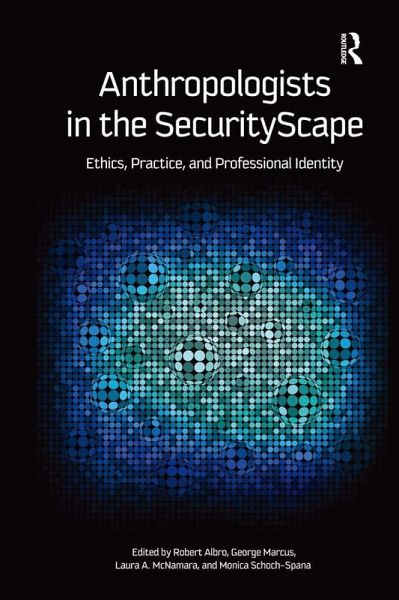
Anthropologists in the SecurityScape (eBook, ePUB)
Ethics, Practice, and Professional Identity
Redaktion: Albro, Robert; Schoch-Spana, Monica; McNamara, Laura A; Marcus, George
Versandkostenfrei!
Sofort per Download lieferbar
42,95 €
inkl. MwSt.
Weitere Ausgaben:

PAYBACK Punkte
21 °P sammeln!
As the military and intelligence communities re-tool for the 21st century, the long and contentious debate about the role of social scientists in national security environments is dividing the disciplines with renewed passion. Yet, research shows that most scholars have a weak understanding of what today's security institutions actually are and what working in them entails. This book provides an essential new foundation for the debate, with fine-grained accounts of the complex and varied work of cultural, physical, and linguistic anthropologists and archaeologists doing security-related work i...
As the military and intelligence communities re-tool for the 21st century, the long and contentious debate about the role of social scientists in national security environments is dividing the disciplines with renewed passion. Yet, research shows that most scholars have a weak understanding of what today's security institutions actually are and what working in them entails. This book provides an essential new foundation for the debate, with fine-grained accounts of the complex and varied work of cultural, physical, and linguistic anthropologists and archaeologists doing security-related work in governmental and military organizations, the private sector, and NGOs. In candid and provocative dialogues, leading anthropologists interrogate the dilemmas of ethics in practice and professional identity. Anthropologists in the SecurityScape is essential reading for anyone who wishes to understand or influence the relationship between anthropology and security in the twenty-first century.
Dieser Download kann aus rechtlichen Gründen nur mit Rechnungsadresse in A, B, BG, CY, CZ, D, DK, EW, E, FIN, F, GR, HR, H, IRL, I, LT, L, LR, M, NL, PL, P, R, S, SLO, SK ausgeliefert werden.













